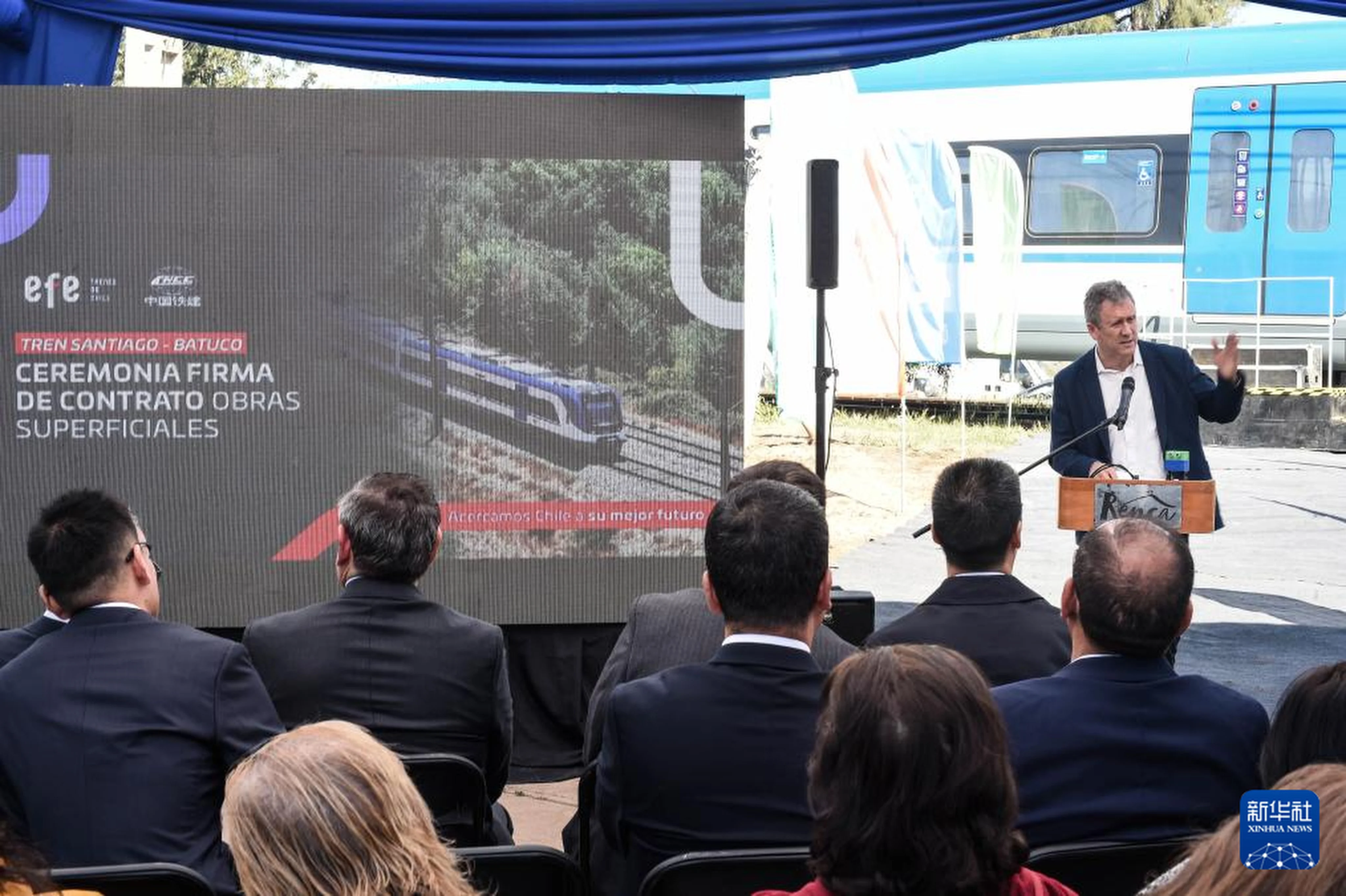By Ralph Jennings
Copyright scmp

A Chinese state-run company will help build a section of Chilean capital Santiago’s commuter rail system, as a host of contractors from China bid to construct a tunnel along the same railway system, reflecting Beijing’s burgeoning economic ties in Latin America.
A consortium led by China Railway Construction (CRCC) has reached a US$470 million agreement with Chile’s State Railway to build a 26km (16.2-mile) electric railway in the South American country’s congested capital, Chinese media outlets reported this week.
The Santiago-Batuco railway line, covering eight stations, will cut travel times into and out of the Santiago city centre to 24 minutes from 90, expediting journeys for about 35 million passengers per year, according to the Chinese reports.
On a separate railway project in the Chilean capital, two Chinese applicant teams are competing with one bidder apiece, from Chile and Spain, to construct a 3.2km (2-mile), US$220 million railway tunnel that will include a new station and its gates 30 metres (98 feet) underground, the Chilean state railway website said.
The lowest bidder is a group comprising the China Road and Bridge Corporation, China Railway International Group and China Railway Tunnel Group. The highest bid comes from CRCC, the China Railway 22nd Bureau Group and the China Railway Construction Electrification Bureau Group. A bidder will be chosen next month, the website said.
China is going to slow down in infrastructure development … so there is a capacity for exporting
Andy Xie, China economist
Chinese participation in building Chilean railways extends Beijing’s growing focus on Latin America, a resource-rich region that has historically looked to China’s rival, the United States, for economic support.
Overseas infrastructure projects give Chinese companies, often veteran construction and engineering firms, a steady stream of jobs as parts of the domestic market have become saturated while economic growth slows, according to analysts. A recent milestone was the US$3.5 billion Chancay port that launched in Peru last year.
“China is going to slow down in infrastructure development, and it’s been slowing down a bit in urban infrastructure development already, so there is a capacity for exporting,” independent China economist Andy Xie said.
“It’s natural after three decades,” he said. “You’ve done so much, you have a lot of experience.”
Infrastructure firms from China are getting better at public-private partnerships abroad and have more home government support than peers from other countries, said Evan Ellis, a research professor of Latin American studies at the US Army War College’s Strategic Studies Institute.
“There certainly has been an effort to build up their global business base,” Ellis said. “Are they running around the world looking for places they can build? I’d say yes.”



